Publications
Articles, publications, books, tools and multimedia features from the U.S. Institute of Peace provide the latest news, analysis, research findings, practitioner guides and reports, all related to the conflict zones and issues that are at the center of the Institute’s work to prevent and reduce violent conflict.
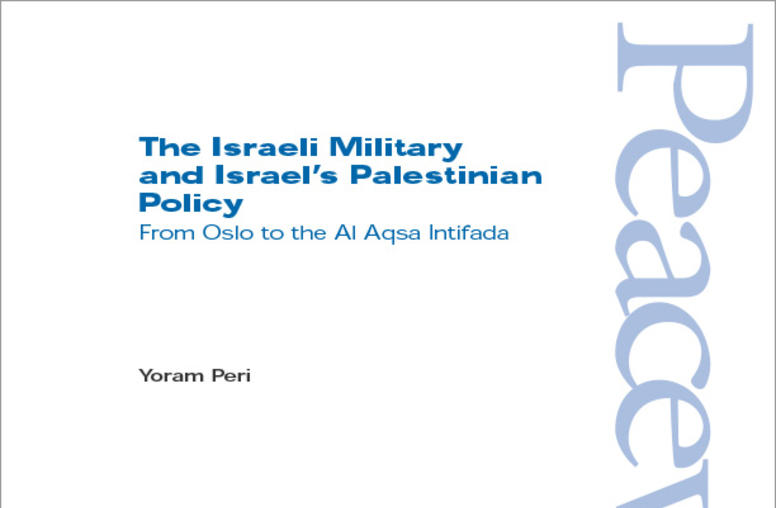
The Israeli Military and Israel's Palestinian Policy: From Oslo to the Al Aqsa Intifada
Peri’s account of Israel’s travails is the broader lesson about what can happen to a democratic political system over decades of constant warfare of greater or lesser intensity. Perhaps inevitably, military leaders, active or retired, acquire great public prominence, while civilian politicians, nominally their superiors shrink in perceived stature. In Israel it has become more and more difficult for either major political party to achieve political success without having a bevy of retired gen...
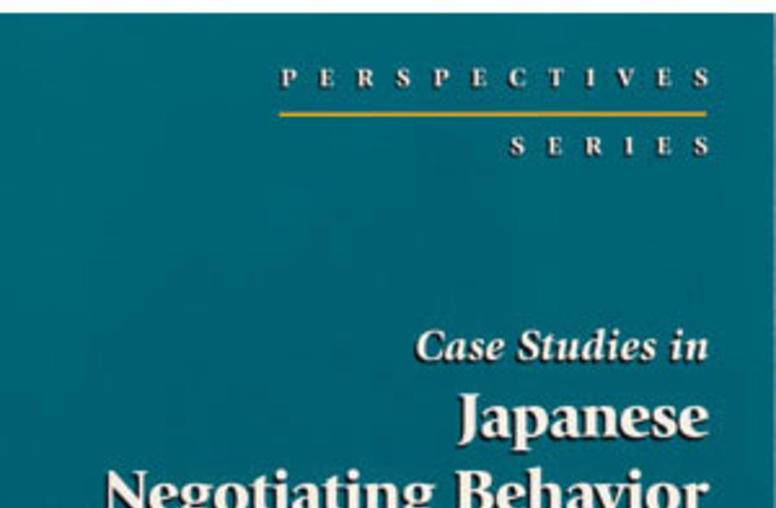
Case Studies in Japanese Negotiating Behavior
This volume explores four recent U.S.–Japanese negotiations—two over trade, two over security-related issues—looking for patterns in Japan’s approach and behavior.
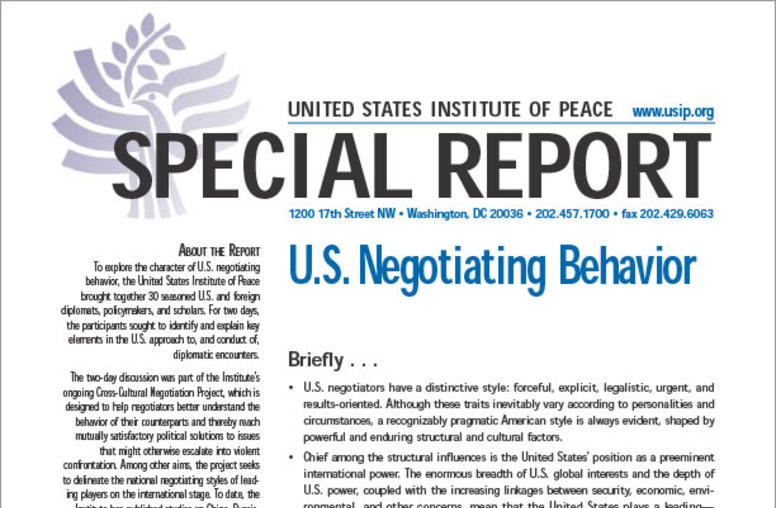
U.S. Negotiating Behavior
Summary U.S. negotiators have a distinctive style: forceful, explicit, legalistic, urgent, and results-oriented. Although these traits inevitably vary according to personalities and circumstances, a recognizably pragmatic American style is always evident, shaped by powerful and enduring structural and cultural factors.
Peace Agreements: Democratic Republic of the Congo (DRC)-Rwanda
Peace Agreement Between the Governments of the Republic of Rwanda and the Democratic Republic of the Congo on the Withdrawal of the Rwandan Troops from the Territory of the Democratic Republic of the Congo and the Dismantling of the Ex-FAR and Interahamwe Forces in the Democratic Republic of the Congo (DRC) (07-30-2002) Posted by USIP Library on: September 23 2002 Source Name: Text received via e-mail from the Republic of South Africa, Department of Foreign Affairs
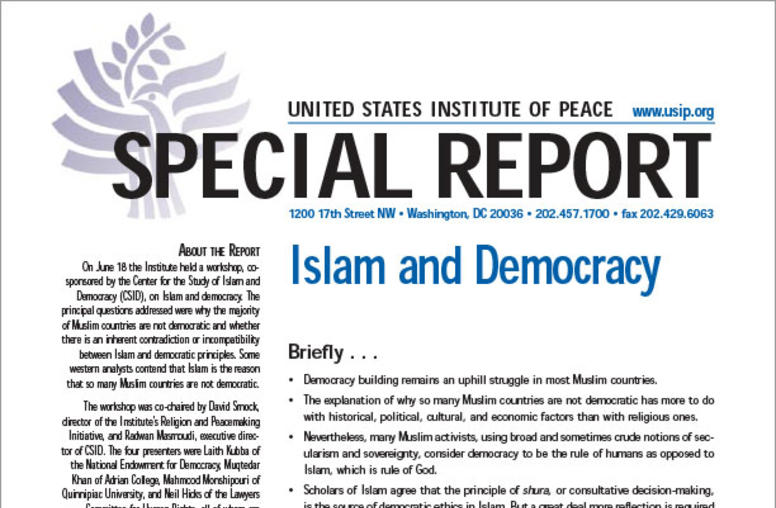
Islam and Democracy
Summary Democracy building remains an uphill struggle in most Muslim countries. The explanation of why so many Muslim countries are not democratic has more to do with historical, political, cultural, and economic factors than with religious ones. Nevertheless, many Muslim activists, using broad and sometimes crude notions of secularism and sovereignty, consider democracy to be the rule of humans as opposed to Islam, which is rule of God.
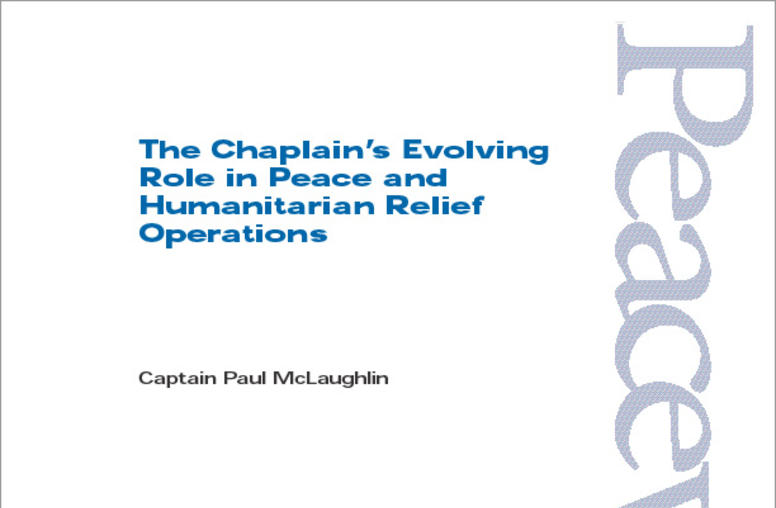
The Chaplain's Evolving Role in Peace and Humanitarian Relief Operations
To determine what role a chaplain could play in the civil-military and humanitarian assistance operations centers and teams present in an intervention, and at what point in the intervention a chaplain should be called upon to be an active participant.
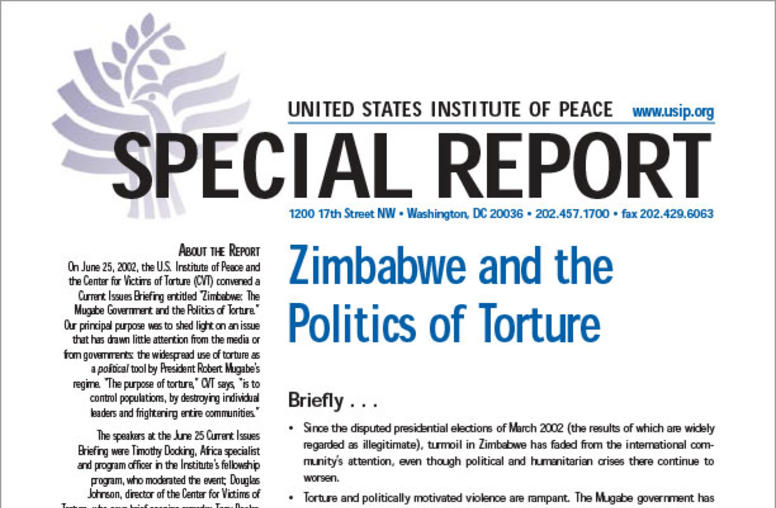
Zimbabwe and the Politics of Torture
Summary Since the disputed presidential elections of March 2002 (the results of which are widely regarded as illegitimate), turmoil in Zimbabwe has faded from the international community's attention, even though political and humanitarian crises there continue to worsen.
Humanitarian Assistance in North Korea (DPRK) Web Links
Below are links to resources primarily in English that provide substantive content on humanitarian assistance in the DPRK (North Korea). International and Non-Governmental Organizations Selected Documents These links complement the Institute Special Report: Overcoming Humanitarian Dilemmas in the DPRK (North Korea). International and Non-Governmental Organizations Caritas Internationalis Caritas Internationalis Web site describes the mission, guiding values and ...
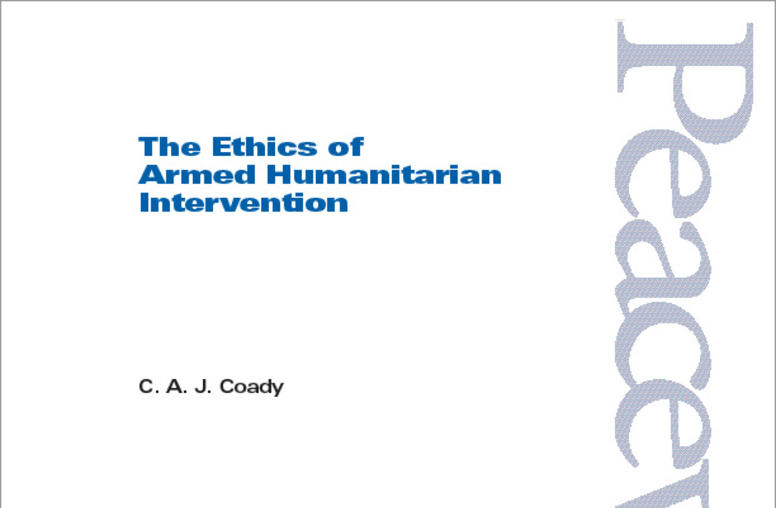
The Ethics of Armed Humanitarian Intervention
At the very beginning of the twenty-first century, two concerns ranked high on the military-political agenda of the Western world: humanitarian intervention and terrorism. This is an essay on the ethical issues surrounding the former.
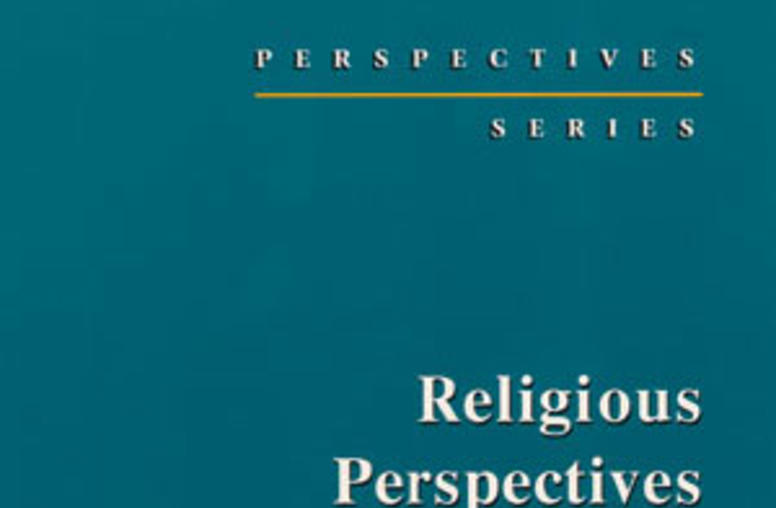
Religious Perspectives on War
In this volume, Jews, Muslims, and Christians with very diverse views address such issues as the just war doctrine, explaining their differences and finding often surprising common ground.